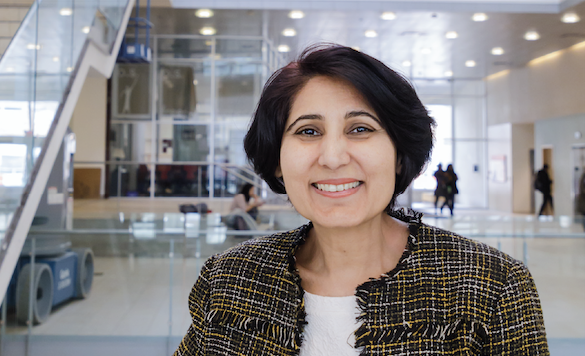
Farah Ahmed
HEALTH POLICY & MANAGEMENT
THE NOTION THAT WE TRUST PEERS over strangers is long established, and in recent years the impetus for organizations has been to tap peer leaders as a conduit for awareness and information about health issues. Lesser known, however, are the emotional complexities of this role, increasingly important in reaching underserved communities. Health Policy & Management Professor Farah Ahmad explores
that relationship through a study funded by Cancer Care Ontario to deepen our understanding of the benefits and challenges of peer leadership.
Ahmad conducted the study with the help of Cancer Awareness: Ready for Education and Screening (CARES), a project led by Dr. Sheila Dunn, Women’s College Hospital that aims to raise awareness and screening of breast and cervical cancer among women who belong to ethnic minority, recent immigrant and low-income communities in Toronto. Recruiting 14 peer leaders connected with project, Ahmad and post
doctoral fellow Manuela Ferrari examined data collected through conducted three focus groups. The results not only confirmed past findings that peer leaders feel social connection and fulfilment from their role but raised new insights about
challenges to be addressed such as the contrast that peer leaders face between their social and professional roles. By acting as leaders and community members simultaneously, peer leaders are forced to negotiate new boundaries. “On one side, people are bringing knowledge to the community, but they were community experts on the other side,” says Ahmad, adding that participants admitted to tensions arising from this
merging of identities. Ahmad believes this is an area where guidance and training from health organizations could help, since the need for community engagement will only increase. “Considering globalization, there’s a bigger and bigger need now to engage people in an equitable and culturally sensitive manner.”
